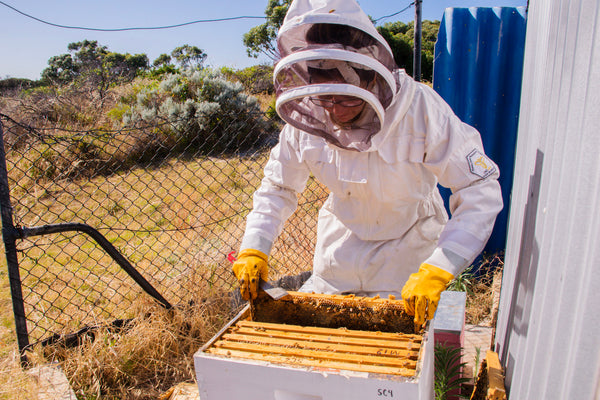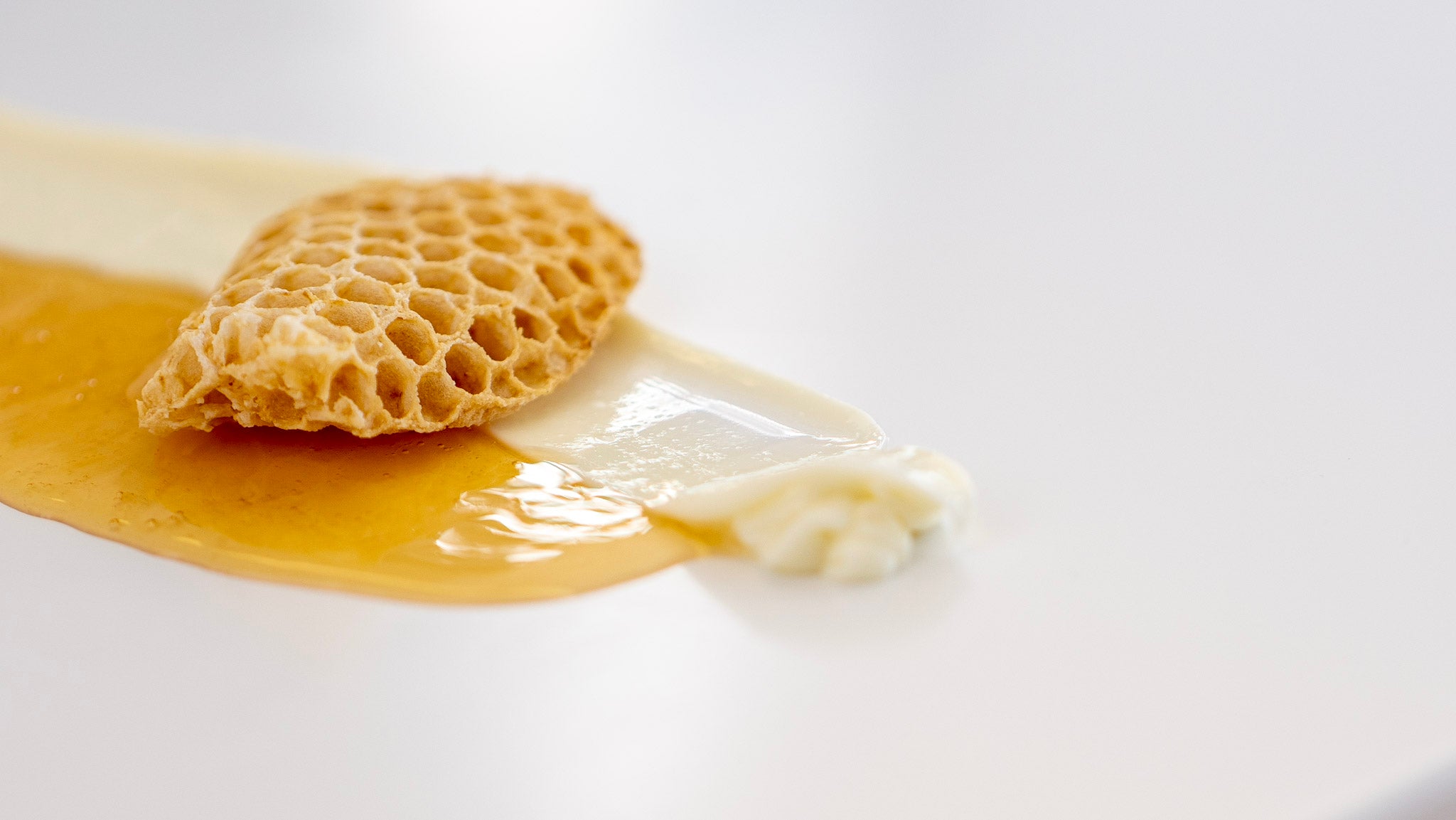Most people are familiar with vegan diets, where you avoid eating animal products such as meat, dairy and eggs.
However, the vegan way of life goes beyond dietary choices – it seeks to exclude all forms of animal exploitation and cruelty wherever possible.
It’s not all cut and dried though, as there are some disagreements on whether certain animal products, such as honey, are vegan-friendly.
This article will explore the role of bees in our lives as well as the ethics of modern beekeeping, so that you can decide for yourself whether honey and some lesser-known bee products can be a legitimate part of your life.
The ethics of beekeeping
Compassion for animals lies at the heart of veganism – which is why cruel practices in industrialised chicken and livestock farming are so heavily criticised.
Many people believe the same arguments can be applied to commercial honey farms and migratory bee farming, especially in the US, where billions of bees are trucked from one farm to the next, disrupting the natural rhythm of the colonies.

Like any animal, bees can be overworked, undernourished or actively harmed by poor practices. Mistreated bees often suffer from diseases and parasites, which then spread throughout the population.
However, it doesn’t have to be this way.
There is a growing trend around the world of sustainable, ethical and biodynamic beekeeping. Taking a ‘hands-off’ approach to bee management, ethical beekeepers provide a safe environment for the hive and take only the surplus honey at the appropriate times of year to avoid harming the bees. They consider themselves to be not so much farmers as shepherds or stewards.
Sustainable beekeeping minimises harm or interference with the bees while enriching the local ecosystem. It could be reasonably argued that this approach respects the core tenets of veganism as a humane movement.
Perfect pollinators
To avoid exploiting animals, strict vegans avoid substances produced by animal labour. Naturally, this would apply to honey, beeswax or any other bee product.
But how far does the definition of ‘animal product’ extend?
Most people would reasonably assume that the influence of the humble bee is limited to honey products, but bees are what is known as a keystone species – a cornerstone of ecosystems and the wider agricultural industry.

Honeybees are prolific pollinators. They fly from flower to flower, fertilising the local flora. Plants graced by bees are healthier and produce bigger and better harvests with a longer shelf-life. Because of this, farmers often rent beehives when their crops are flowering in order to improve the quality of their harvest.
Fruit, vegetables, seeds, nuts and oils are all produced with the labour of industrious bees. So, by the strictest definition, a large part of the vegan diet is not in fact vegan. Truly steering clear of anything that is animal-derived can be much trickier than it first appears to be.
Saving the bees
As we’ve mentioned, bee pollination is an important part of agriculture. However, pollination is even more important to the global ecosystem.
Pollination increases biodiversity, makes plants more resilient to disease and pests, and supports insect and animal life.
Yet, despite their importance, a world without bees is becoming more of a possibility due to threats from climate change, disease, parasites, pesticides and unsafe beekeeping practices.
Fortunately, ethical beekeepers, businesses and conservationists are doing all they can to preserve the bee population and help them adapt to a changing world.
If going vegan is about making the kind of choices that bring about positive change, then support for sustainable and ethical beekeeping might not be as contradictory as it sounds.
As with most choices, there’s a sliding scale of impact and where you choose to sit is up to you. Depending on how strict your definition of veganism is, honey and honey products just might not be off-limits.
References
Annals of the Entomological Society of America (2008), ‘The bee fauna of residential gardens in a suburb of New York City (Hymenoptera: Apoidea)’, vol. 1, pp. 1067–1077, accessed July 2022. https://academic.oup.com/aesa/article/101/6/1067/2758518?login=false
Bjorn K. Klatt, Andrea Hozschuh, Catrin Westphal, Yann Clough, Inga Smit, Elke Pawelzik and Teja Tscharntke (2014) ‘Bee pollination improves crop quality, shelf life and commercial value’, accessed June 2022. https://royalsocietypublishing.org/doi/10.1098/rspb.2013.2440
Ecology and Evolution, ‘Urban gardens promote bee foraging over natural habitats and plantations’, accessed July 2022. https://onlinelibrary.wiley.com/doi/10.1002/ece3.1941
Environment South Australia, ‘Why bees are so important to the environment,’ accessed July 2022. https://www.environment.sa.gov.au/goodliving/posts/2016/10/bees
Food and Agriculture Organization of the United Nations ‘Good beekeeping practices for sustainable apiculture’, accessed June 2022. https://www.fao.org/3/cb5353en/cb5353en.pdf
The Vegan Society, ‘Definition of veganism’, accessed July 2022. https://www.vegansociety.com/go-vegan/definition-veganism
Vegan Australia, ‘How does animal agriculture affect the environment?’ accessed July 2022 https://www.veganaustralia.org.au/faq#how_does_animal_agriculture_affect_the_environment


